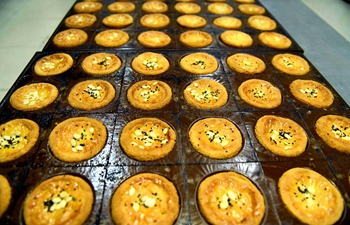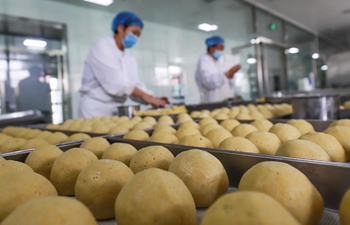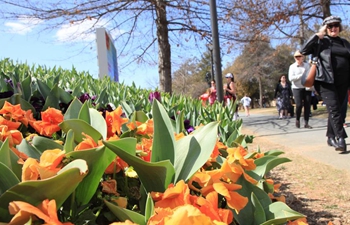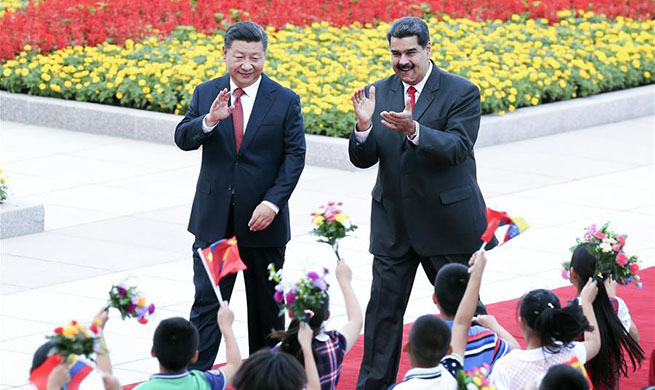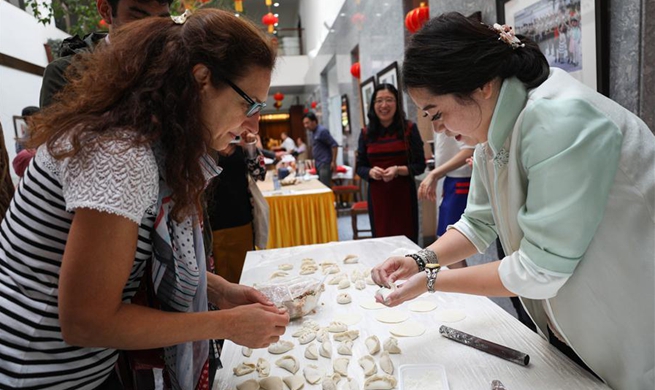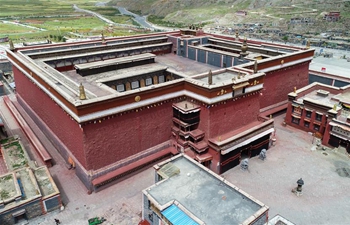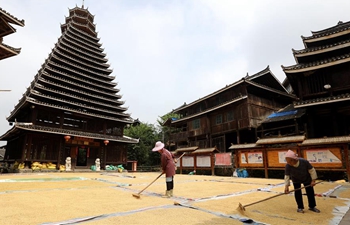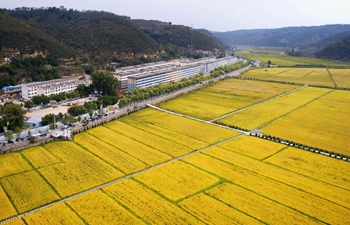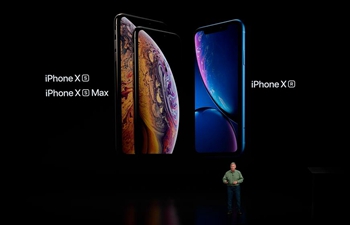by Xinhua writers Guo Ying, Gao Shan
BEIJING, Sept. 15 (Xinhua) -- By wearing virtual reality (VR) glasses and operating hand-held controllers, visitors can "walk" into the Mogao Grottoes and get a dynamic 360-degree panorama image of the sculptures and murals inside.
This system is based on a high-definition virtual reconstruction of the current state of Cave 159 of the Mogao Grottoes in Dunhuang. It is part of the projects on show in the exhibition "Renaissance of Traditional Culture" held at Tsinghua University this week.
The exhibition features digital innovations of Chinese cultural heritage conducted by teachers and students from the Academy of Arts and Design, Tsinghua University.
"We hope to use digital innovation and modern interactive technologies to preserve and showcase China's ancient cultural heritage, offering viewers an immersive experience," said Lu Xiaobo, dean of the Academy of Arts and Design, Tsinghua University.
Lu said the digital representation of the Mogao Grottoes is also part of a national-level research project. The project involves large-scale historical research as well as on-the-spot investigation.
"The images of feitian, or flying apsaras, depicted in the murals, have weathered with time and their faces are almost black. In order to find the original colors, we have to search for clues in historical materials and do research on the changing roles of mural painting pigments," Lu said.
According to Lu, they aim to make the digital representation true to history, while combining modern aesthetics to make the heritage more appealing to modern viewers.
In front of a holographic screen, visitors can watch an animated film and appreciate the elegant dances of the feitian.
"We do not completely follow the prototype in the mural painting. We use animation technology to bring the character to life, enabling viewers to get a vivid impression," Lu said.
Wang Zhigang, curator of the exhibition, said besides the digital representation of famous cultural heritages, many installation artworks incorporating traditional Chinese culture such as ink painting and traditional handicrafts are also on display.
"Most of them are created by students at Tsinghua, and those young talents have shown their understanding of Chinese cultural heritage in the designs," Wang said.
Zhang Lie, director of Interaction Media Design Institute of Tsinghua, focuses on the interaction design that combines art and technology. He is also applying digital and interactive technology to cultural heritage representation.
"We have been conducting project-oriented research and adopt an interdisciplinary approach. Students and experts from varying backgrounds such as history, archeology and design come together to brainstorm on how to make cultural heritage more appealing to the public," Zhang said.
Zhang's team is now working on a digital program for the Confucius Museum in Shandong Province. They will digitalize a series of ancient paintings that depict Confucius' life. They also plan to use speech recognition technology, which allows visitors to have an interactive discussion on The Analects, a collection of Confucius' sayings and ideas.
"We hope our designs will make visitors feel closer to Confucius," Zhang said.




